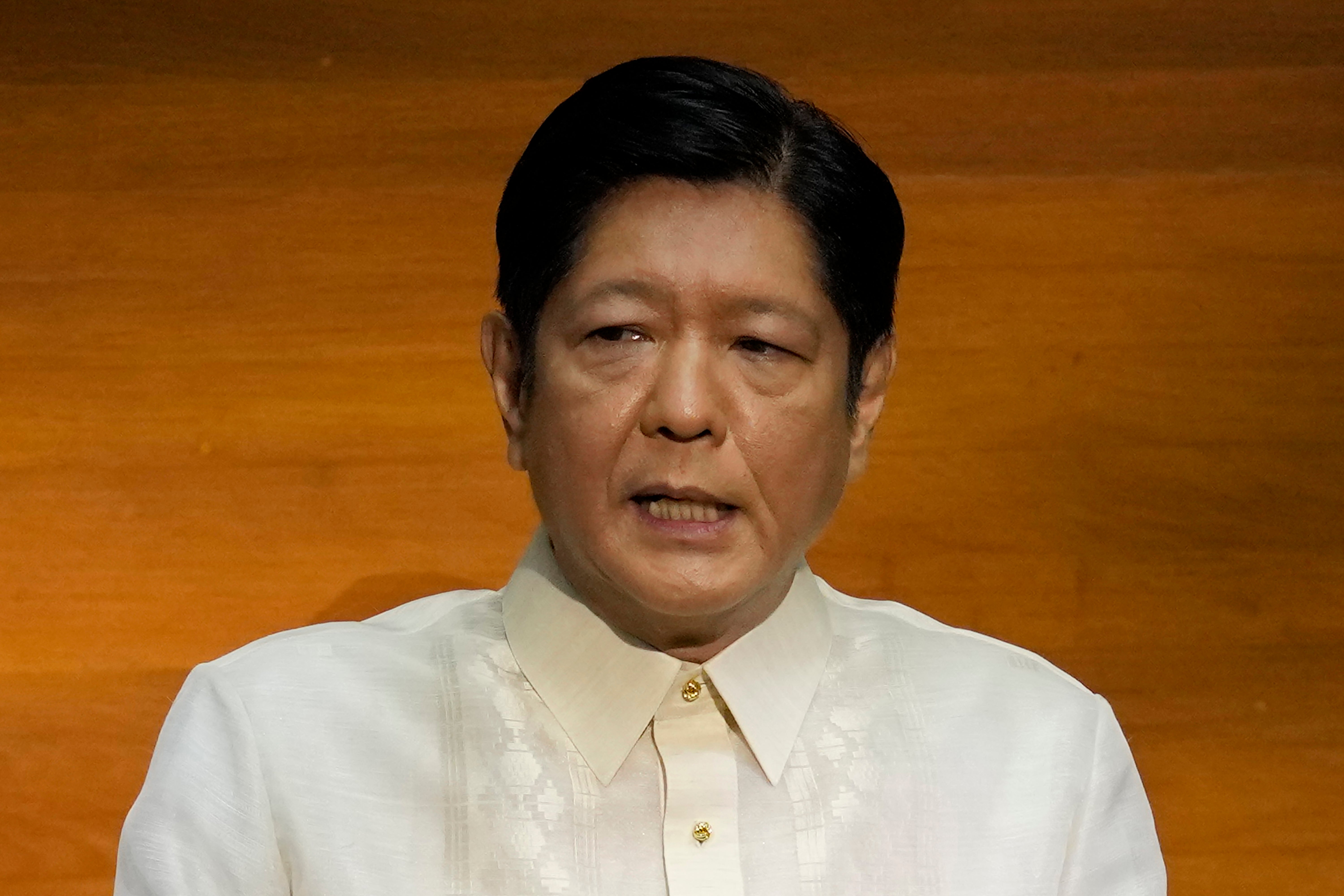Marcos trip to watch Singapore F1 races sparks criticism
A trip by Philippine President Ferdinand Marcos Jr. to Singapore over the weekend to watch Formula One races has come under attack from critics who described it as “utterly callous” while thousands of Filipinos remain displaced due to a recent typhoon

Your support helps us to tell the story
From reproductive rights to climate change to Big Tech, The Independent is on the ground when the story is developing. Whether it's investigating the financials of Elon Musk's pro-Trump PAC or producing our latest documentary, 'The A Word', which shines a light on the American women fighting for reproductive rights, we know how important it is to parse out the facts from the messaging.
At such a critical moment in US history, we need reporters on the ground. Your donation allows us to keep sending journalists to speak to both sides of the story.
The Independent is trusted by Americans across the entire political spectrum. And unlike many other quality news outlets, we choose not to lock Americans out of our reporting and analysis with paywalls. We believe quality journalism should be available to everyone, paid for by those who can afford it.
Your support makes all the difference.A trip by Philippine President Ferdinand Marcos Jr. to Singapore over the weekend to watch Formula One races has come under attack from critics who described it as “utterly callous” while thousands of Filipinos remain displaced due to a recent typhoon.
Marcos Jr. confirmed his trip to Singapore for the Grand Prix event in a brief statement and pictures he posted on Facebook on Monday night after a flurry of online criticism.
“They say that playing golf is the best way to drum up business, but I say it’s Formula 1,” Marcos Jr. said. “What a productive weekend.”
He said without elaborating that he was invited with other dignitaries and met new business friends who were willing to invest in the Philippines, and added he would disclose more details later.
Over the weekend, reports circulated on social media about Marcos Jr.’s unannounced trip to Singapore. Marcos Jr.’s press secretary did not issue a confirmation until after a Singaporean official posted pictures of Marcos Jr. in the city-state on Facebook.
Singaporean Minister for Manpower Tan See Leng named Marcos Jr. among the foreign dignitaries he had met “to affirm our bilateral economic relationships and strengthen collaborations in energy cooperation as well as exchange views on manpower policies on the sidelines of the race.”
Singapore Prime Minister Lee Hsien Loong also posted pictures on Facebook showing him with others including Marcos Jr. and his wife, Liza Araneta-Marcos. “Happy to link up again with friends from both here and abroad, to watch the race and enjoy the good company,” the caption read.
Critics hit the secrecy that shrouded the president’s trip and demanded more details from the government about the trip, including if public funds and resources were used.
“We assert that the Singapore F1 weekend getaway was insensitive, unnecessary and irresponsible given the crisis that the nation is in,” Renato Reyes of the left-wing Bayan political alliance said in a statement. “Only the utterly callous and shamelessly entitled would not get this point.”
A Philippine official said Marcos Jr., his wife and two sons left Manila on Friday on a military plane for an overnight stay in Singapore to watch the Grand Prix races, adding it was his third trip to Singapore since winning the presidential election in May. The official, who had knowledge of the trip, spoke on condition of anonymity because of a lack of authority to discuss the issue publicly.
The Kilusang Mayo Uno labor movement said the trip was an insult to workers grappling with hyper-inflation and low wages and victims of a powerful typhoon which left at least 12 people dead and a trail of devastation in northern provinces a week ago. Thousands remained displaced following the onslaught, the government’s disaster response agency said.
Marcos Jr., the son of a dictator who was ousted by an army-backed “People Power” pro-democracy uprising in 1986, took office in June following a landslide electoral victory.
He inherited enormous problems, including a pandemic-battered economy, deeper poverty and unemployment, decades-old insurgencies and a potential food crisis sparked partly by Russia’s invasion of Ukraine.